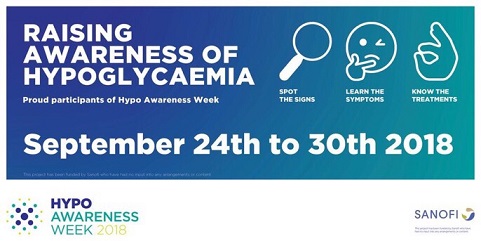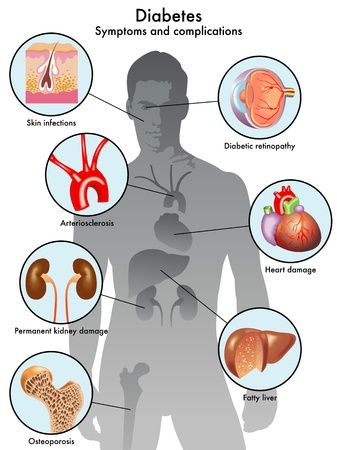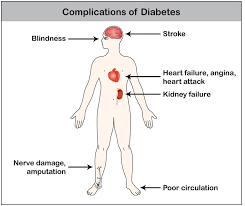(Disclaimer, I still only have vision in one eye so please excuse any mistakes! Proofreading is too difficult when typing hard enough!)
Why is it important to question your personal motives behind being a charity representative and volunteer?
I often find myself fretting over the level of acceptability and appropriateness of contributions I provide to the DWED website and social media pages. This is essentially because I am no good example to follow in terms of healthiness or recovery from T1ED. I have also been called out on the issue bt friends that only want to see me well and healthy.
I’ve been a volunteer for DWED for over a decade now and presently have a very active role, contributing to the majority of online content and campaigning for awareness through regular posts to Twitter, Facebook and interaction with other associated pages, groups and organisations. These days I feel I have become director, founder and good friend Jacq’s second in command, and have tried to hold the fort steady over the recent period of time during which she has been forced to focus primarily on the demands of completing her PH d something that I am in awe of and also so very proud of her for. Let me stress that none of what I do or have done for DWED in the past has ever been asked for nor expected of me.
But the undeniable fact is that I am not recovered from T1ED and still very much struggle with my own eating disorder and mental health. This offers up a quandary concerning the authenticity and validity of me being a DWED representative or standing as any kind of advocate for the cause we, and I, promote.
Should I be allowed to have such an active role in DWED? Is it okay for me to put myself in the position of being a spokesperson and even offer advice to others with T1ED on how to cope and aim for achieving a better quality of life? Is it acceptable I put out opinions that serve to support or even challenge our members over their own eating disorders when I perhaps need to devote more attention to overcoming my own? Is there a line between black and white here or are there many shades of light to thick foggy grey?
I know I won’t come to a conclusion either way, and I can’t control any perception that the people that read this blog will have, but I’d still like to acknowledge the argument and present my explanations. I hope not to sound as if am providing excuses or attempts to dilute fair judgements but instead some justification and details of context. I also feel obligated to admit that I myself have objected to other charity volunteers that air views that can often raise red flags to highlight a hypocrisy that dilutes the messages they are relaying. But is that most sanctimonious and disrespectful of me? Those character traits are ones I’d truly loathe to have, even if just fleetingly.
My ultimate objective is to always try to be genuine and never serve as an example to DWED’s followers of what recovery is or should be like. I am careful, or hope to be in never serving as an example of how to be or reflect any kind of attitude that remotely encourages other to follow my lead or to not be positive about being able to beat their own difficulties. I try to say ‘this is what we need’ or ‘this is how treatment and the system needs to change’ rather than ‘you can better by just doing x and y’, because really, who am I to say when I have not been able to get there myself? It would be inherently two-faced and undermining.
I’ve also been asked why I am so invested, why I can’t break away like so many volunteers have before me. In many cases this has been for the purpose of attempting recovery or achieving some semblance of purpose outside of the disordered ‘bubble’ - an environment that may be triggering and let’s be honest, quite boring if you’ve found other aspects of life to occupy time and thoughts.
My response to this is again uncertain – on the one hand I do wonder why I have pretty much become the main volunteer standing at DWED, at least in an admin -type capacity and one that places me in a public faced role in writing the members content. blogs and navigating DWED’s social media activity. I do think yes, it’s caught up in the way my disorder is so very ingrained and a part of what I am used to, but it’s certainly not a negative thing for me, in fact I see it as positive and helpful. I care and I want to help. At the end of the day when I see our analytics and the responses to tweens or Facebook posts, as well as retweets of my writing, it makes me feel accomplished. Like I have made a change and done something useful beyond eating and puking or obsessing about the number on the scales.
Of course, if I could have a thriving full-time journalism career instead, perhaps with a focus on literature, as well as still playing some part in supporting DWED as a way to give back, then that would be fantastic. But It’s not realistic, and so I do what I can do feel better about myself as accept my efforts as achievements, however small those may seem at times. Certainly, that acceptance can shrink to dust as I shrug it all away as nothing worthwhile. But I know my pesky sick and self-destructive voice all too well. Doesn’t mean I do not hear it. I push my fingers in my ears, sing la-la-la and try to not let it disrupt entirely
There’s no clear-cut conclusion to any of this. It comes down to how followers and supports of DWED regard my involvement with DWED. That is crucial because I’d never ever want to be a negative influence to members that need support,. Furth more I’d hate to be an annoyance, overexposed or too honest and forth giving, dramatic even, a drama queen. I do worry that our blog page basically reads as ‘Claire’s diary’ now! But simply without these blogs there would be scarce content and little promotion or exposure of the charity on an online and socially interactive level.
I finish though by asking of you all to please come forward to me and tell me if I am being unhelpful or if you’d rather I pipe down a bit! I mean that. My writing is also of value to me and so I want to be safe with knowing that on the whole the work I am producing is okay and does the good that I want it to do. I’d rather know if something is off so I can try to make changes. You can always PM me on Facebook or DM on Twitter. Alternatively, to hide your identity feel free to use the anonymous contact form on our site (ignore the info about being a case study and just submit your message.)
Thank you for listening xx









